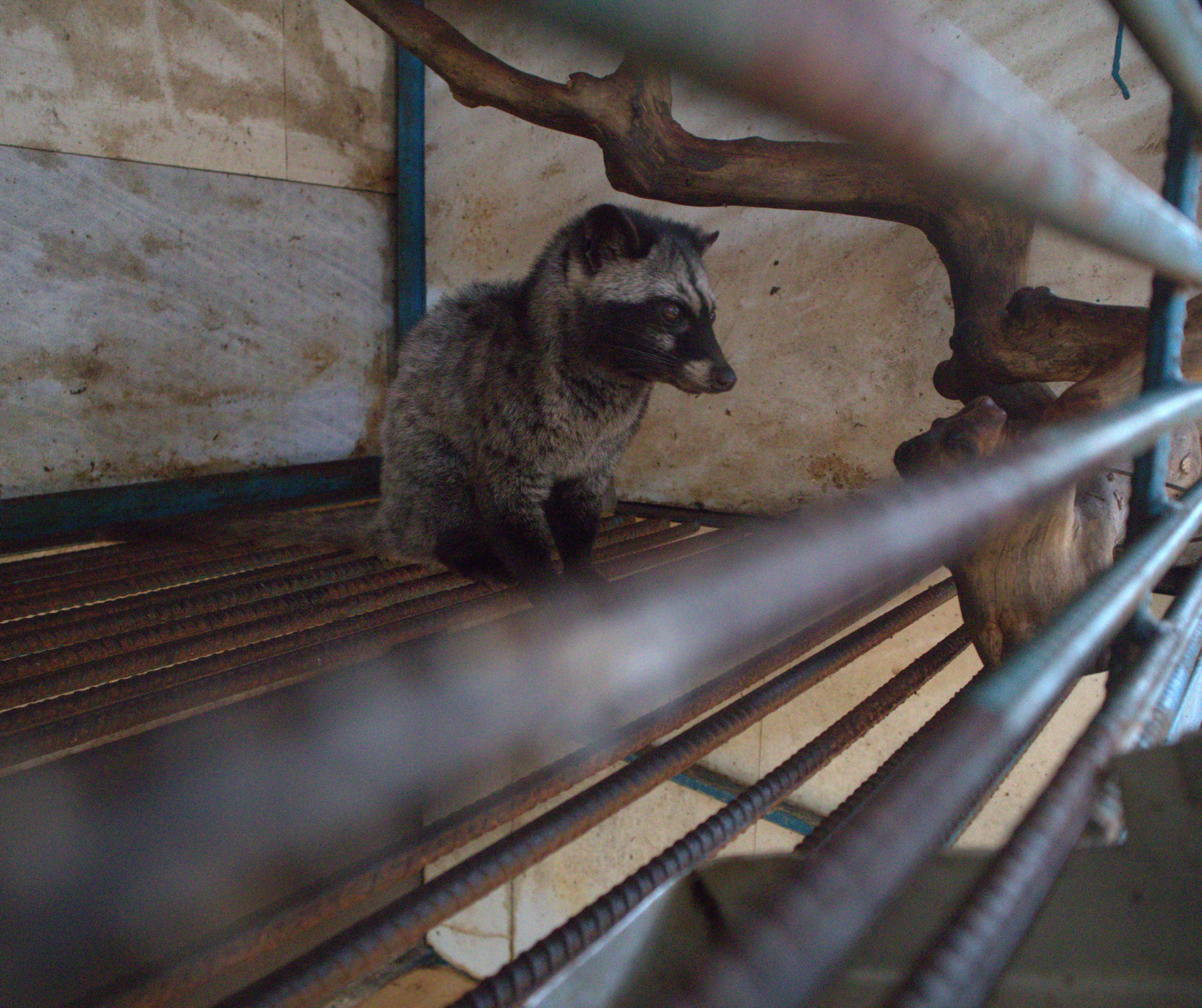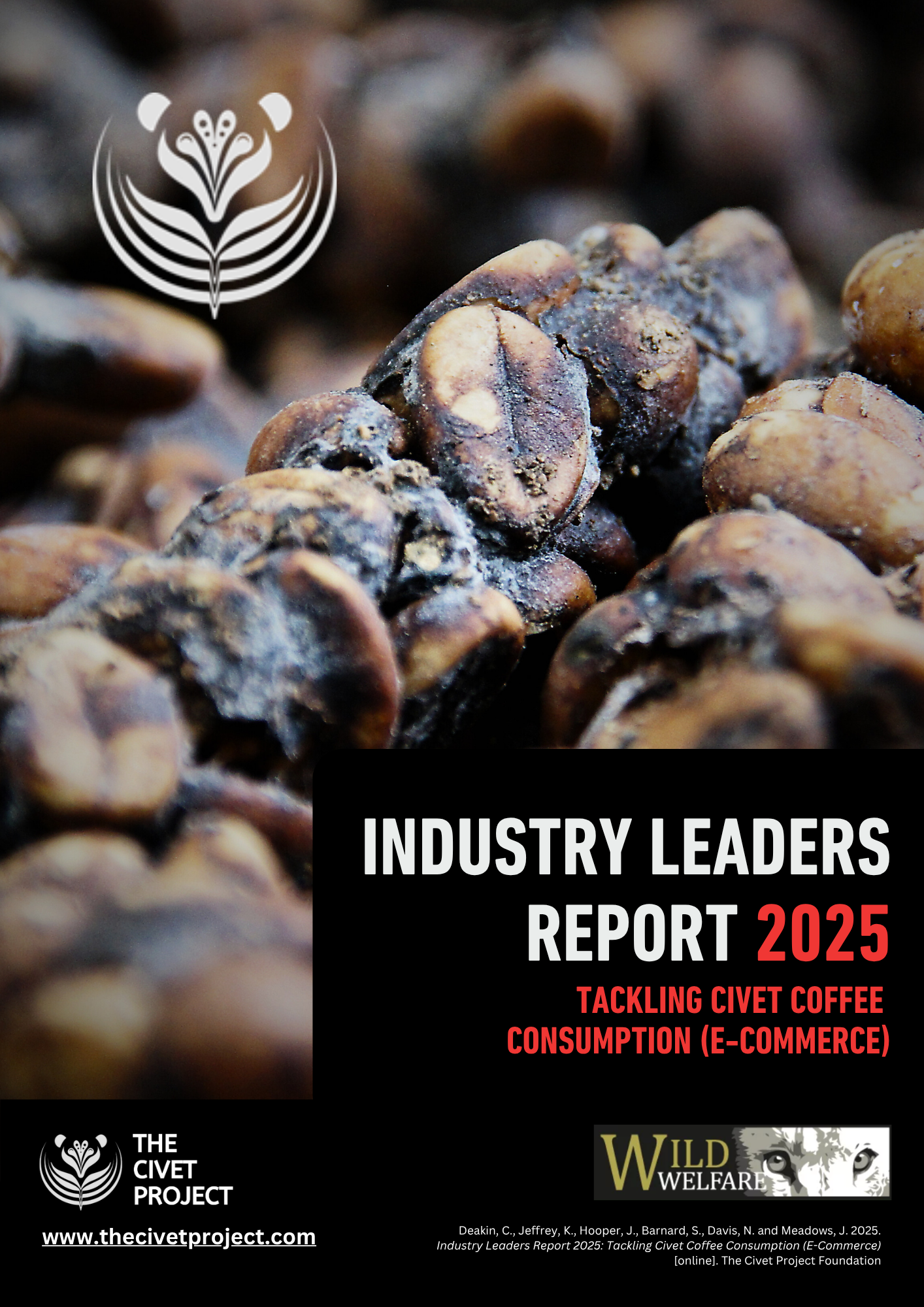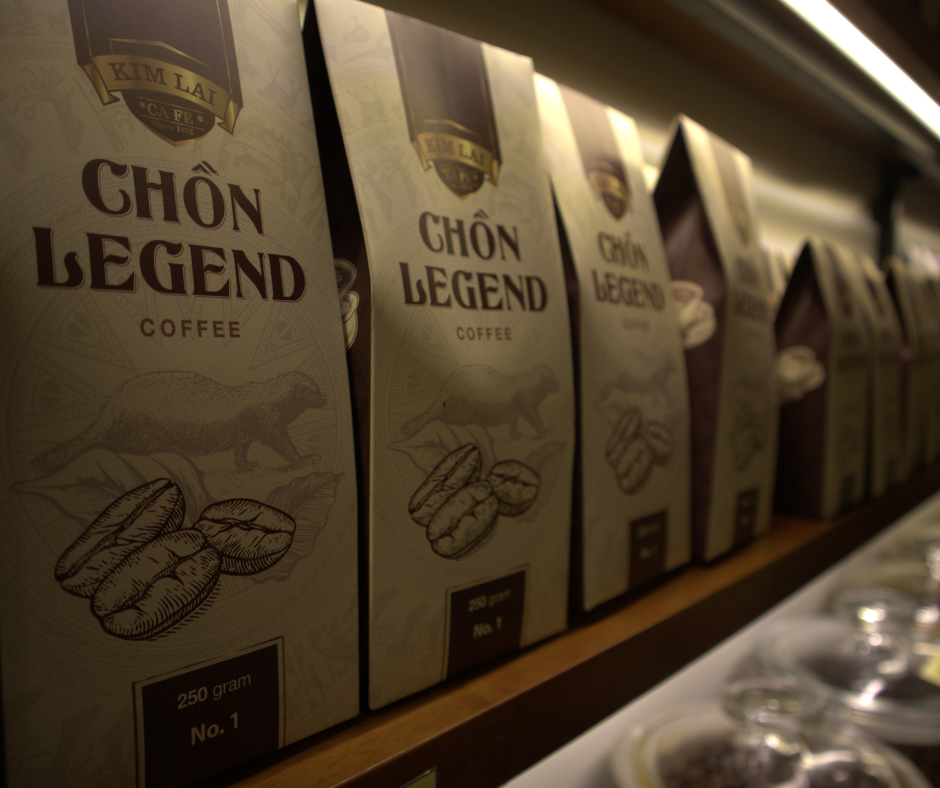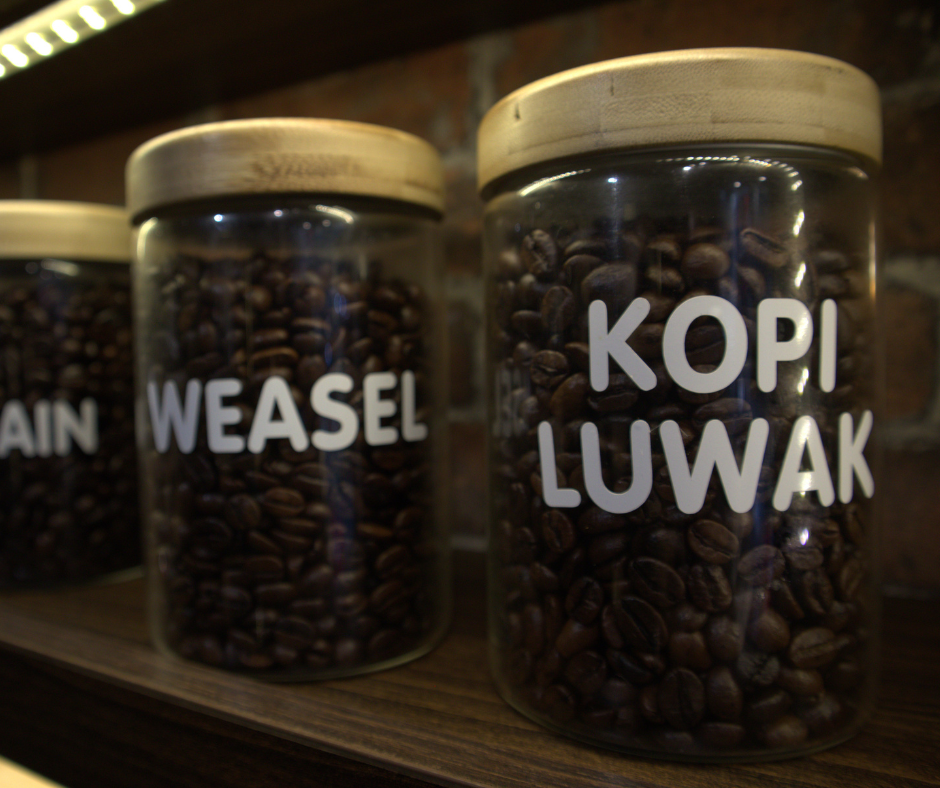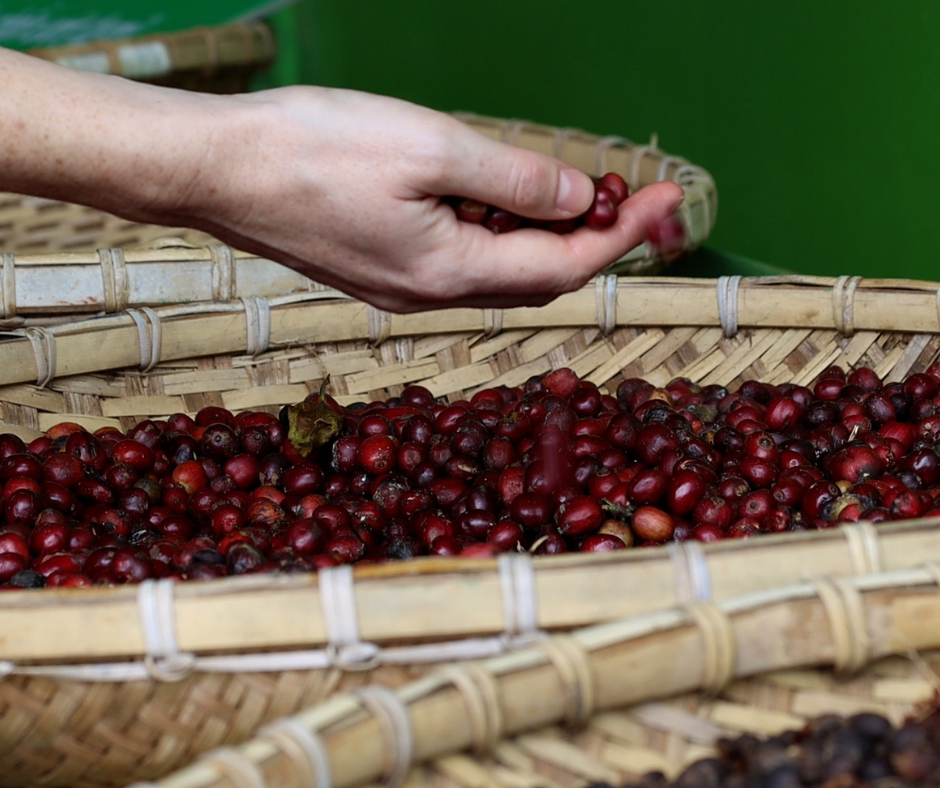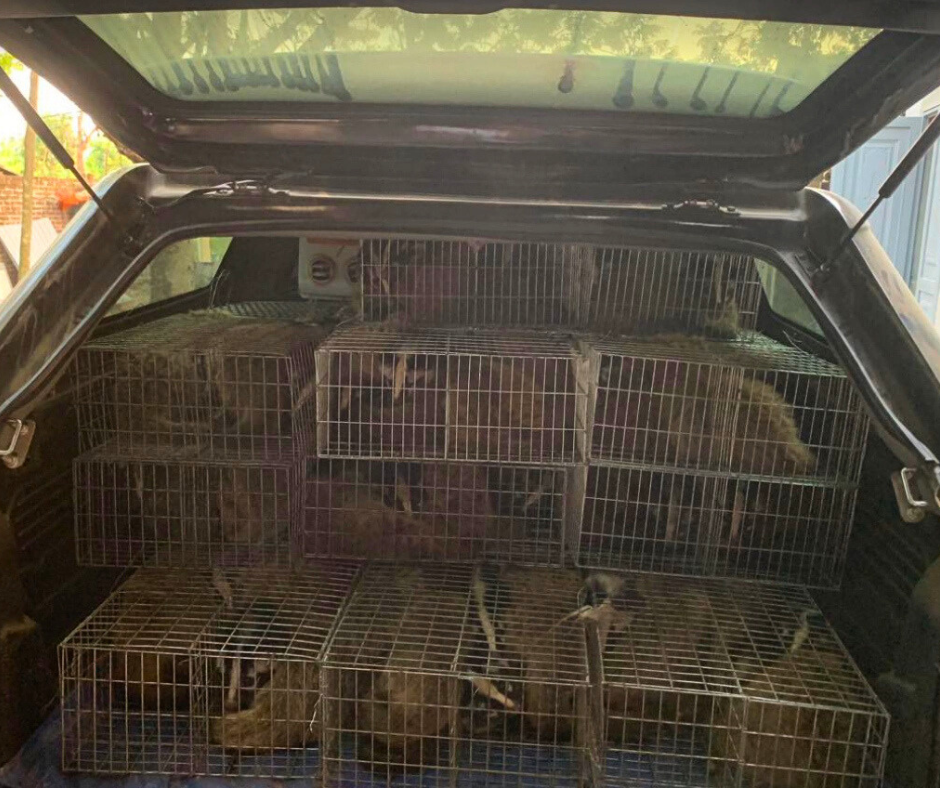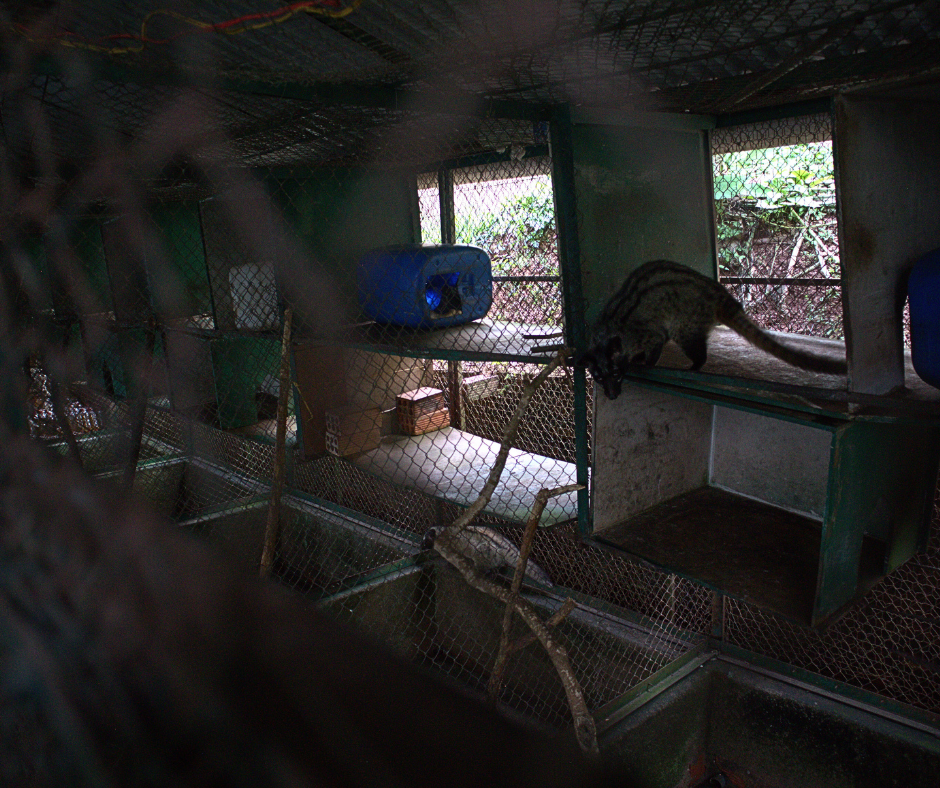Consumers and Animals at Risk from Online Sale of “Cat-Poo-Chino”
The weaponisation of animal welfare to purposely deceive consumers into purchasing products reliant on animal suffering is absolutely despicable.
Charity investigation reveals widespread fraud in civet coffee sales on Amazon, eBay and Etsy
London, UK, 21st October 2025. A new investigation by animal welfare and conservation charity The Civet Project Foundation, supported by international animal welfare organisation Wild Welfare, has uncovered rampant fraud and serious animal welfare concerns linked to the online sale of civet coffee, often dubbed “cat-poo-chino”, on major eCommerce platforms including Amazon, eBay, and Etsy.
Civet coffee, or kopi luwak, is marketed as a luxury product made from coffee beans that have passed through the digestive tract of civets, small nocturnal mammals native to Southeast Asia. Once hailed as the rarest and most expensive coffee in the world, with some cups priced as high as £50, civet coffee has become a symbol of exotic indulgence. However, The Civet Project’s investigation paints a much darker picture of civet coffee’s origins and the market behind it.
Following a surge in global demand, sparked by its appearance in the 2007 film The Bucket List, civet coffee has evolved into a multi-billion-dollar industry. Instead of collecting beans from wild civet droppings as often claimed, producers are now capturing wild civets, confining them in dirty barren cages, and force-feeding them coffee cherries under harrowing conditions.
“These animals suffer immensely in captivity,” the charity reports. “Wild civets are caught using inhumane methods, suffer severe injuries, and are confined without proper care, biosecurity, or veterinary oversight.” This not only violates animal welfare standards, but also poses a significant public health risk, as civets have been identified as potential vectors for diseases including SARS and COVID-19.
Beyond the animal cruelty concerns, the environmental cost is also severe. Civets play a vital ecological role as seed dispersers and pest controllers. Their removal from the wild is contributing to biodiversity loss and environmental degradation across Southeast Asia.
Despite the UK public's growing demand for ethical sourcing and high animal welfare standards, the investigation, detailed in the newly published “Industry Leaders Report 2025: Tackling Civet Coffee Consumption (eCommerce)”, found:
- Every civet coffee product that claimed certification from named organisations for being 'wild collected' or 'cage-free' was either fraudulent or untraceable.
- Sellers falsely claimed certification from organisations such as WWF, Rainforest Alliance, and World Animal Protection, all of whom confirmed no affiliation with civet coffee
- All claims of ethical sourcing or animal welfare standards were found to be fraudulent or untraceable
- These misleading practices violate UK consumer protection laws, including the CMA Green Code and the Digital Markets, Competition and Consumers Act 2024
- The consumer standards, animal welfare, environmental and sustainability issues associated with civet coffee products actively breach seven platform policies employed by eBay, Amazon and Etsy.
Despite having clear policies against misleading claims, all three platforms were found to be hosting sellers in breach of their own rules, highlighting a serious enforcement gap.
Dr Jes Hooper, CEO of The Civet Project Foundation, said: “UK consumers have shown time and again that animal welfare is an important consideration when deciding what products to buy and from whom. The weaponisation of animal welfare to purposely deceive consumers into purchasing products reliant on animal suffering is absolutely despicable. The public deserves much better from coffee retailers and eCommerce platforms. We strongly urge people to boycott civet coffee.”
The scale of the issue is alarming. Between May and August 2025, over 182kg kilograms of civet coffee were available for sale on UK-facing eCommerce sites. Despite its supposed rarity, some products were listed for as little as £15.67 per packet.
In response to the multitude of policy violations involved in the sale of civet coffee, The Civet Project is calling on Amazon, eBay, and Etsy to immediately classify civet coffee as a prohibited item and to ban its sale on their platforms. The charity is also urging consumers to boycott civet coffee this Christmas and beyond.
About The Civet Project Foundation
Established as a Charity Incorporated Organisation in 2023, The Civet Project Foundation is the only charity in the world solely dedicated to civet species protection. The organisation aims to protect wild civets from exploitation in the coffee, meat, and exotic pet trades through research, education, and policy reform grounded in the One Health framework.
For media inquiries, interviews or further information, please contact:
jes@thecivetproject.com
www.thecivetproject.com
About Wild Welfare
Wild Welfare is a global organisation committed to improving animal welfare for captive wild animals. By uniting the world’s leading zoos, zoo associations and animal welfare organisations, we build trusting partnerships that help provide long-term solutions to critical wild animal welfare issues.
Press release distributed by Pressat on behalf of The Civet Project Foundation, on Monday 20 October, 2025. For more information subscribe and follow https://pressat.co.uk/
Civet Coffee Consumer Ethics Coffee Fraud Animal Welfare Conservation Public Health Business & Finance Charities & non-profits Christmas Environment & Nature Farming & Animals Food & Drink Health Media & Marketing Retail & Fashion
Published By

07580117965
jes@thecivetproject.com
https://www.thecivetproject.com/
Jes Hooper, CEO: jes@thecivetproject.com
Zak Showell: Chair: zak@thecivetproject.com
Visit Newsroom
You just read:
Consumers and Animals at Risk from Online Sale of “Cat-Poo-Chino”
News from this source:


